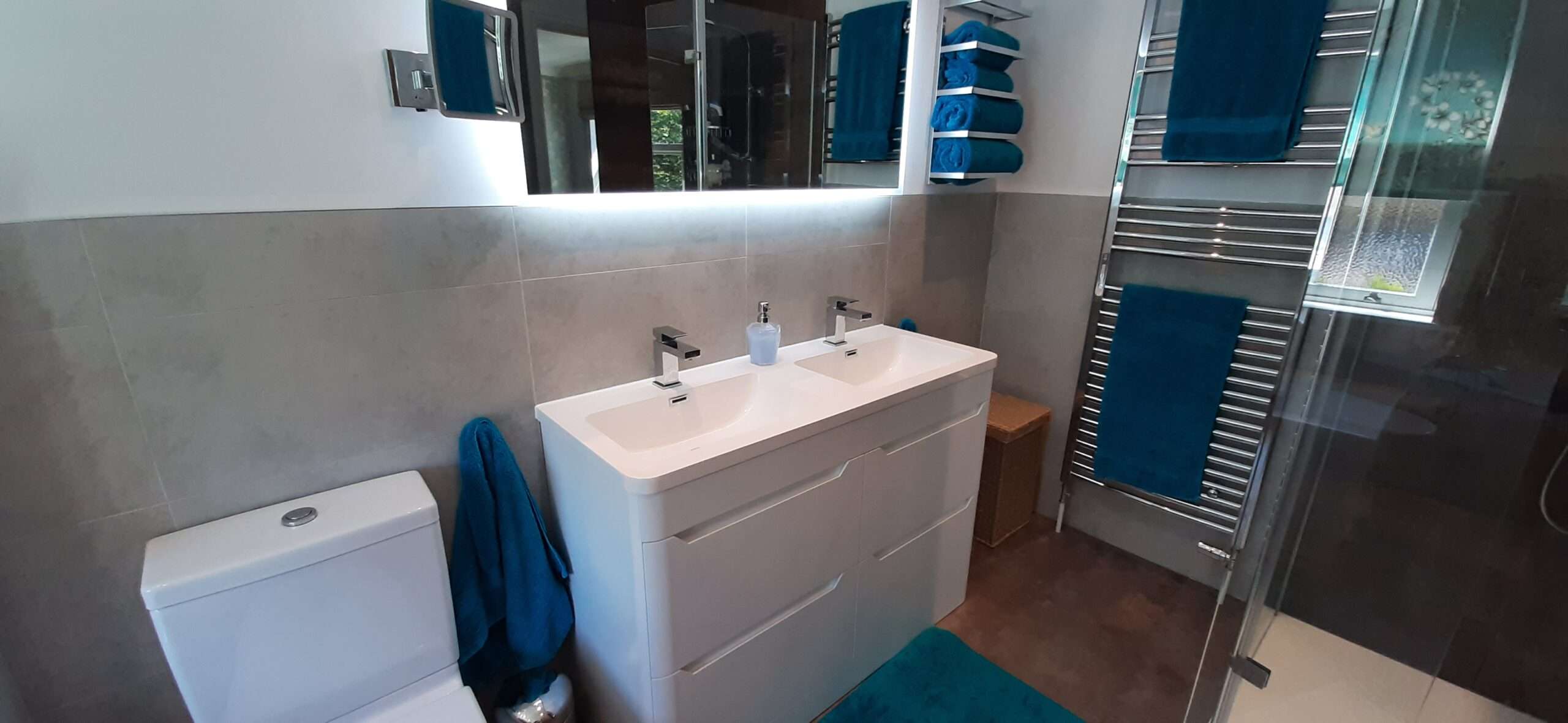
Fitting a Bathroom: A Comprehensive Guide
Are you considering fitting a new bathroom or upgrading your current one? A bathroom renovation can be an exciting and rewarding project. However, it can also be a daunting task, especially if you lack the necessary skills and knowledge. Fitting a bathroom involves complex systems and skills such as plumbing, electrical work, and tiling, which may require hiring professionals.
In this comprehensive guide, we will explore everything you need to know before embarking on a bathroom fitting project. From understanding the benefits of bathroom renovation to hiring the right professionals, we’ve got you covered.
Benefits of Fitting a Bathroom
You may be wondering whether it’s worth the effort and expense of fitting a new bathroom. The answer is yes! A bathroom renovation can offer several benefits, including:
Increased Home Value
A new or updated bathroom can significantly increase the value of your home. Potential buyers are often attracted to homes with modern, functional, and stylish bathrooms. A well-designed bathroom can make your home more appealing and stand out in the market.
Improved Functionality
If your current bathroom doesn’t meet your needs, it’s time for an upgrade. Fitting a new bathroom can improve the functionality of your space by adding new features such as a walk-in shower, a larger bathtub, or additional storage.
Enhanced Comfort and Relaxation
A bathroom should be a relaxing and comfortable space where you can unwind and de-stress. A bathroom renovation can help you achieve this by creating a spa-like atmosphere with soothing lighting, calming colors, and luxurious fixtures.
Increased Energy Efficiency
A new bathroom can also help you save money on energy bills. Installing energy-efficient fixtures such as low-flow toilets, LED lighting, and water-saving showerheads can significantly reduce your energy and water usage.
Hiring a Bathroom Fitter
Now that you understand the benefits of fitting a bathroom, the next step is to hire the right professionals for the job. Whether you’re planning a complete bathroom remodel or just updating a few fixtures, finding the right bathroom fitter is crucial. Here are some things to consider before hiring a bathroom fitter.
Experience and Qualifications
When hiring a bathroom fitter, ensure they have the necessary experience and qualifications. Look for a company or individual with a proven track record of successful bathroom renovations. Check their credentials, such as licenses, certifications, and insurance, to ensure they are qualified to carry out the work.
Portfolio and References
A reputable bathroom fitter should have a portfolio of past projects they have completed. Ask to see their portfolio and references from past clients. This will give you an idea of their style, quality of work, and customer satisfaction level.
Cost and Budget
Before hiring a bathroom fitter, determine your budget and get a quote for the work. Ensure the quote includes all the necessary materials, labor, and any additional costs such as permits or disposal fees. Compare quotes from multiple bathroom fitters to find the best value for your money.
Timeline and Availability
Ask the bathroom fitter about their availability and the estimated timeline for the project. Ensure they can work within your preferred timeframe and that the estimated completion date is realistic.
Communication and Customer Service
A good bathroom fitter should have excellent communication and customer service skills. They should be able to explain the project details clearly, answer your questions promptly, and keep you updated throughout the project.
DIY Bathroom Fitting
If you’re feeling adventurous, you may want to try fitting your own bathroom. However, keep in mind that bathroom fitting involves complex systems and skills, so it’s essential to have the necessary knowledge and experience. Here are some things to consider before attempting a DIY bathroom fitting project.
Research and Planning
Before starting a DIY bathroom fitting project, do your research and planning. Ensure you have a clear understanding of the project scope, the necessary materials and tools, and any building codes or regulations. Create a detailed plan and timeline for the project.
Skills and Experience
Fitting a bathroom involves plumbing, electrical work, tiling, and other skills that may require professional training and experience. Ensure you have the necessary skills and knowledge before attempting any work. If you’re unsure or lack experience, it’s best to hire a professional.
Safety Precautions
Bathroom fitting can be a hazardous task, so it’s essential to take safety precautions. Wear appropriate protective gear such as gloves, goggles, and masks. Ensure all electrical and plumbing work is up to code and avoid working alone.
Time and Budget
DIY bathroom fitting projects can take longer and cost more than anticipated. Ensure you have enough time and budget for the project, including unexpected expenses.
Conclusion
Fitting a bathroom can be a challenging but rewarding project. Whether you decide to hire a professional or attempt a DIY project, ensure you have the necessary skills, knowledge, and budget. A new or updated bathroom can significantly increase the value of your home, improve functionality and comfort, and save you money on energy bills. With proper planning and execution, your bathroom fitting project can be a success.
Why Choose Us to install your DREAM Bathroom
Our google reviews
First time customer and would highly recommend. Arrived exactly on time and very friendly and polite.
leak in the toilet, which was a nuisance for 3 months, was repaired in 1 h. A nice surprise on the end of a small amount for repair. I highly recommend. 😊
So when it came to a complete renovation of our main bathroom, he was the obvious choice.
We went with a complete rip out and started again. Floors came up plasterboard—the lot. We even reconfigured the airing cupboard and put our tank in the loft. Alex reconfigured all the stud work to allow the bathroom to repurpose the space.
Alex helped us with the new bathroom configuration and planning and advised on the best products to source. Seeing the detail and the eye for perfection Alex has meant we ended up with a brilliant job. Everything Alex did was superb, carefully thought out and executed. I am so pleased we chose him to undertake the work. I couldn't recommend him highly enough. We could have paid much more and not received such a good finished job as we got from Alex. Highly recommend
First time customer and would highly recommend. Arrived exactly on time and very friendly and polite.
leak in the toilet, which was a nuisance for 3 months, was repaired in 1 h. A nice surprise on the end of a small amount for repair. I highly recommend. 😊
So when it came to a complete renovation of our main bathroom, he was the obvious choice.
We went with a complete rip out and started again. Floors came up plasterboard—the lot. We even reconfigured the airing cupboard and put our tank in the loft. Alex reconfigured all the stud work to allow the bathroom to repurpose the space.
Alex helped us with the new bathroom configuration and planning and advised on the best products to source. Seeing the detail and the eye for perfection Alex has meant we ended up with a brilliant job. Everything Alex did was superb, carefully thought out and executed. I am so pleased we chose him to undertake the work. I couldn't recommend him highly enough. We could have paid much more and not received such a good finished job as we got from Alex. Highly recommend







